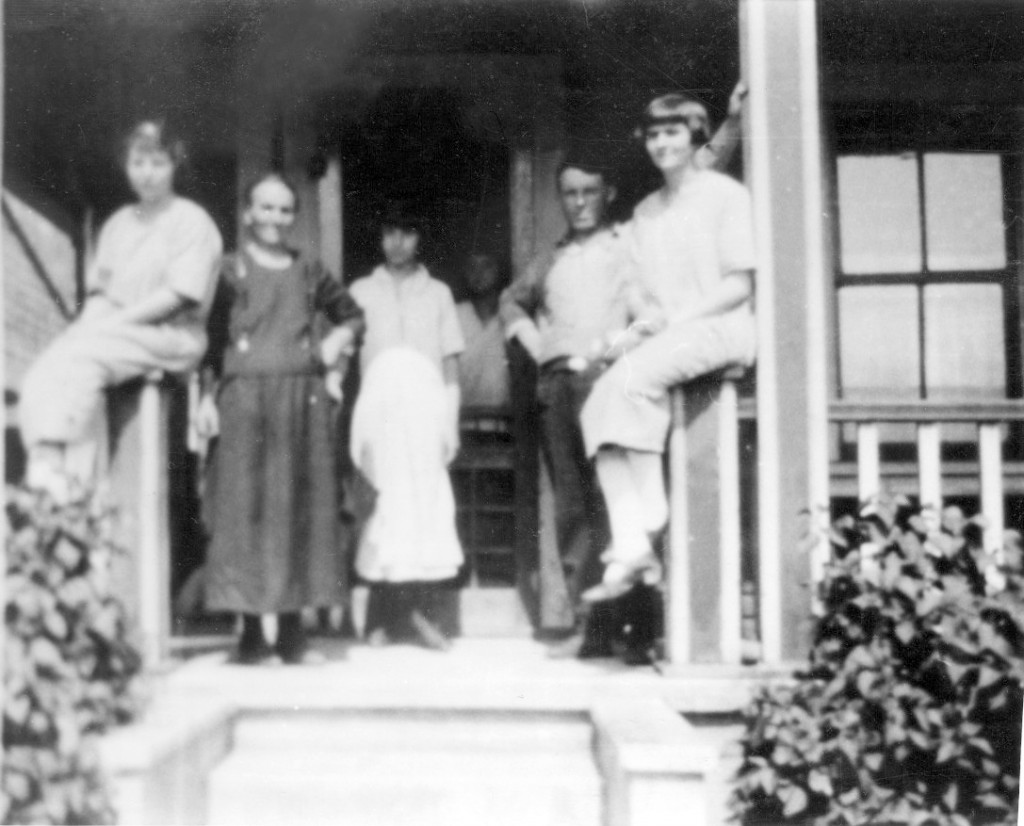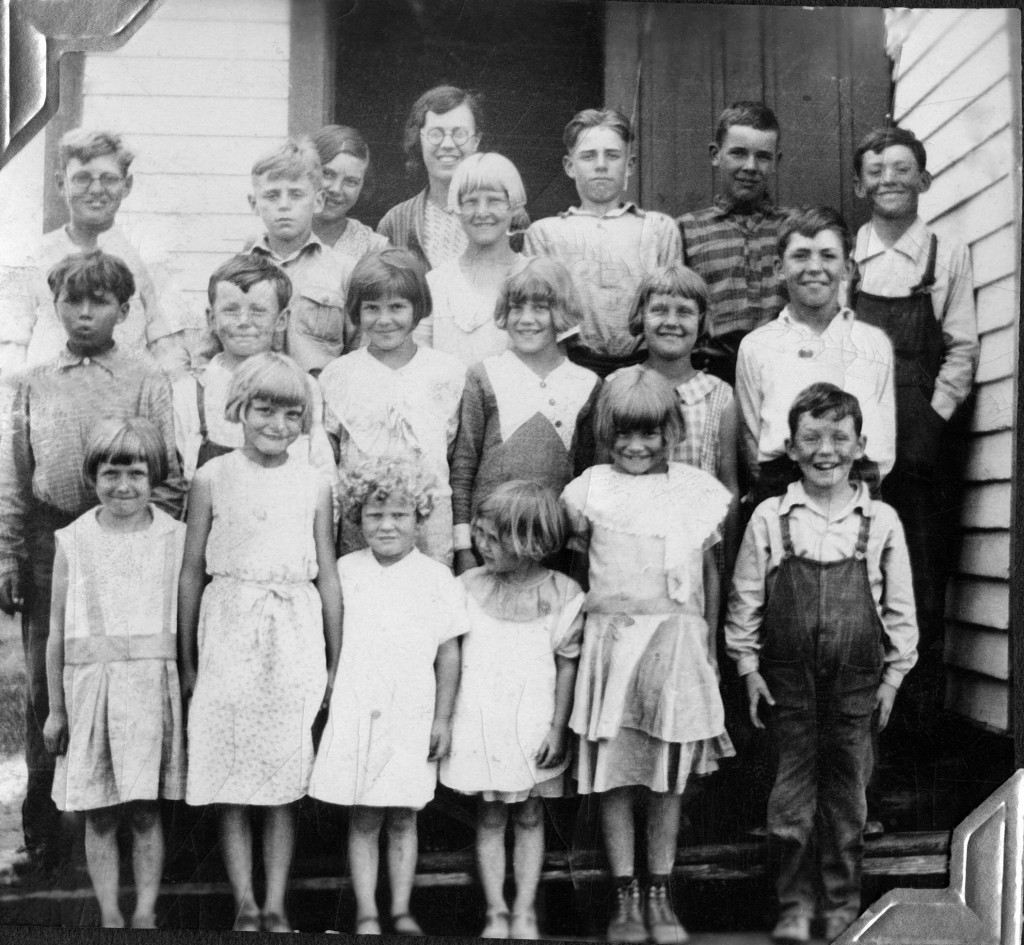1841 and 1851 English Census
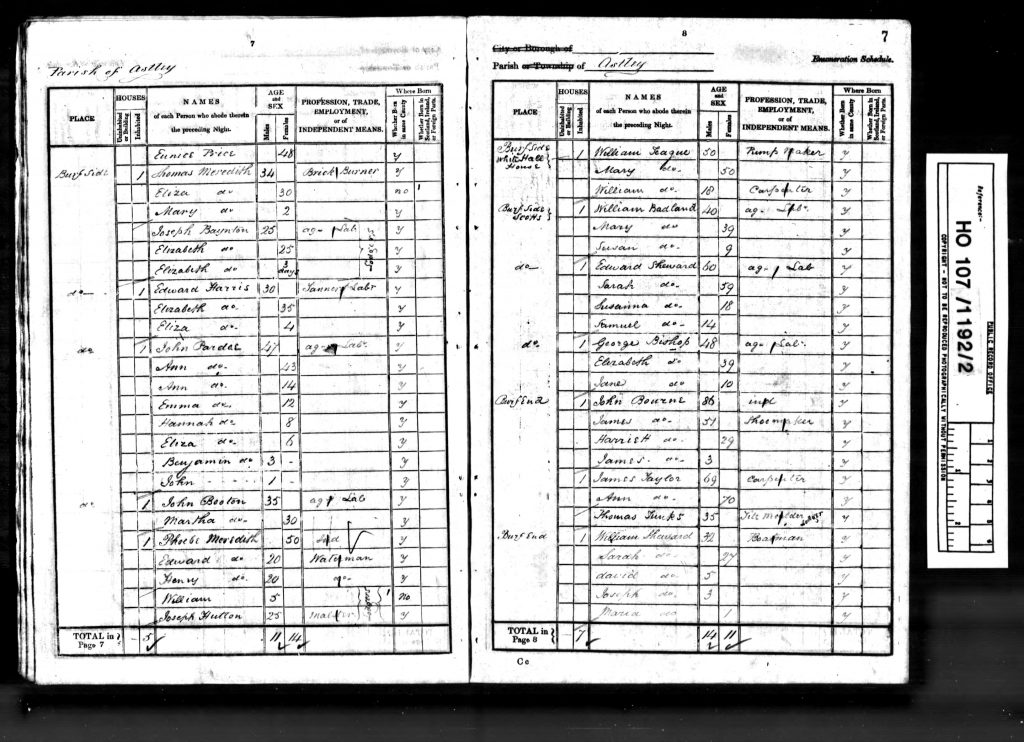
Why are we looking for this information?
- One of the main sources of information available to genealogists is the census records.
- Used in combination with church records and civil registration records, census records are a great way to locate ancestors.
A census is a complete population count for a given area or place taken on a specific date. Censuses were implemented for purposes of tax collection, military recruitment and accurate government representation. The first census carried in England where actually the names of every individual were listed, was the 1841 Census. This is the reason why it is considered to be the first modern UK census (and is the first genealogically useful). Although the original census schedules were destroyed many years ago, the books were kept and eventually moved to the PRO Kew (now known as The National Archives). In 1970 the books were filmed, thus offering to the interested parties an alternative way of checking them up. Since internet has been rising as research tool, most of the records have been digitalized and placed on the web. Much of the indexing work was carried with the help of volunteers interested in giving back to the genealogical community.
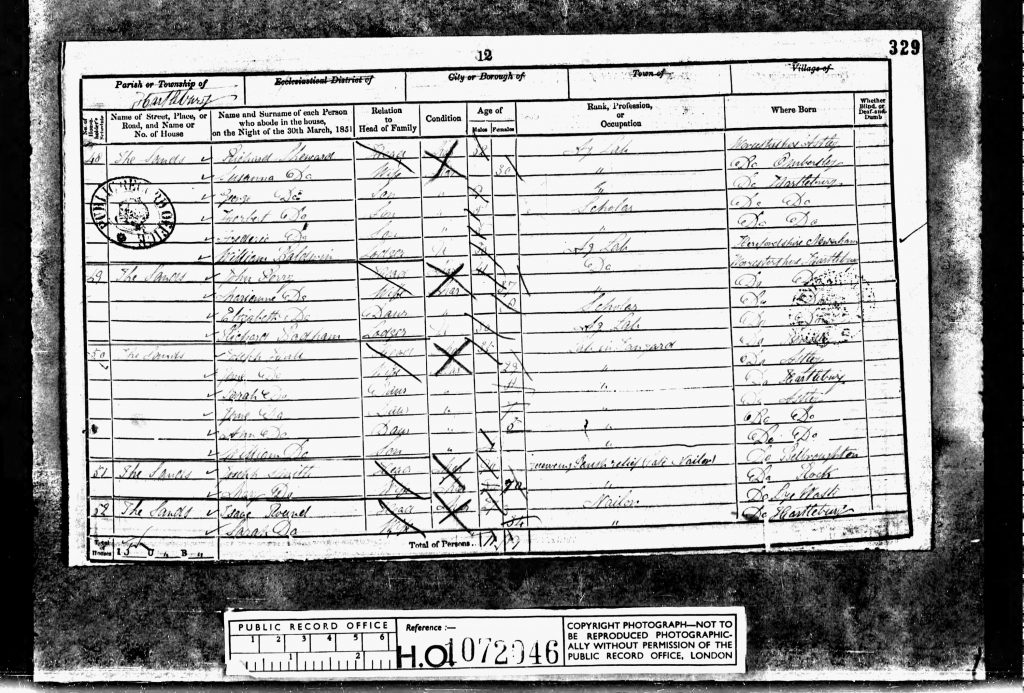
What kind of information can I get from a census record?
Depends on the Census; as a general rule, the closest the date to our times, the more information you can get. For example: full name, exact age, relationship to head of household, sex, occupation, parish and county of birth, medical disabilities and employment status.
What is the difference between the 1841 Census and the 1851 Census?
The 1851 Census is much more relevant from the genealogical point of view than the 1841 Census because it does not just have more information, but also, more accurate information.
- The 1841 Census recorded address (vague) , names, occupation of each individual, country of birth and age (with some imprecisions: for those having 15 and under the exact age was recorded, while for those over 15, age was recorded to the lowest 5 years, e.g. 55 for someone aged 56, 57, 58 or 59 at the time of the census) .
- Data recorded in the 1851Census was more detailed: road, street, number or name of house (and whether the house was inhabited or not), name and surname of each person, relationship to head of house, married/unmarried, age last birthday, profession, whether employed or not, place of birth, whether blind/insane/feeble minded.
How did a Census worked?
- Each householder was required to complete a pre-printed census schedule.
- The enumerator then collected the census schedules. If there was no one in the house who could write, the enumerator helped to record the information.
- The census schedules were later copied into census enumerators’ official books, which were known as the ‘Census Enumerator’s books’.
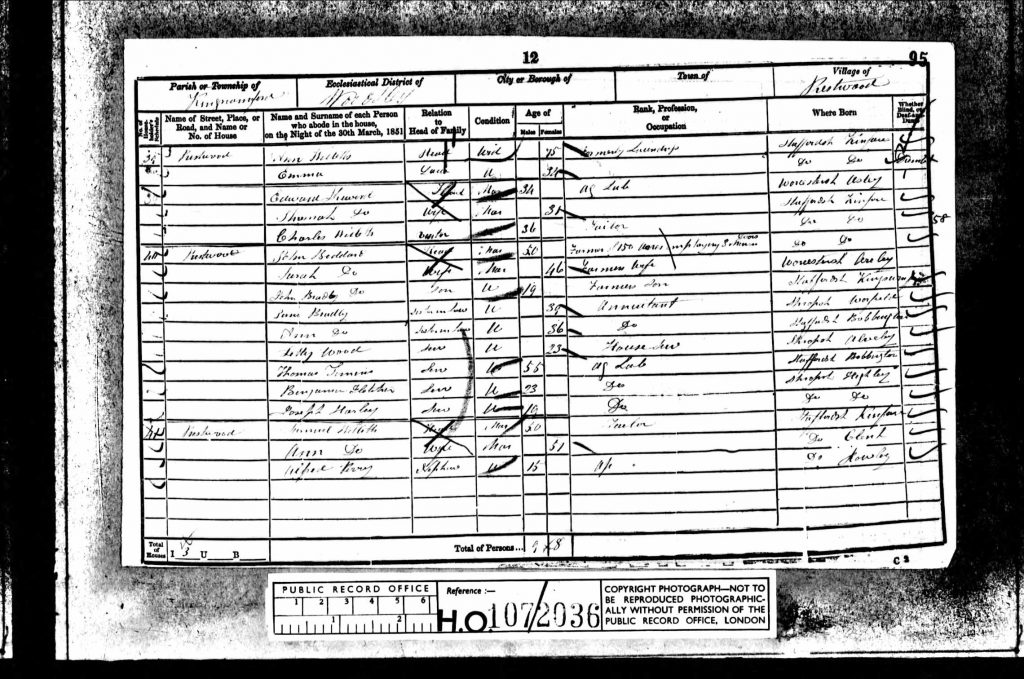
How do I locate ancestors in the Census records of 1841 and 1851? Is it hard?
Nowadays, many genealogy sites offer access to the census records and indexes:
www.ancestry.co.uk
($) 1841-1911 Complete Índex with Images
www.familysearch.org
1841-1911 Complete Índex
www.findmypast.co.uk
($) 1841-1911 Índex & images
www.genuki.org.uk
Beta testing Links to indexes
www.censusfinder.com
(free) Transcripts of some England census records
www.freecen.org.uk
(free) Transcripts of some England census records
Information courtesy of: https://familysearch.org/wiki/en/England_Census)
- However, in the case of the 1841 census there is a legibility problem because it was written in pencil rather than pen. So many pages have proved unreadable on microfilm.
- To rectify this problem, Ancestry.com has gone back to the original census manuscripts -digitalizing directly from there and not from the microfilm records- many of these hard-to-read pages as hi-resolution color images, whose writing is now more clearly visible. Therefore, even if there are other sources for online checkup of these census records, the best place to look for them is without doubts Ancestry.com
- The information available is for England, Wales, the Channel Islands and the Isle of Man. Scottish censuses can be checked up at http://www.scotlanspeople.gov.uk/ while Irish censuses can be seen at the http://www.nationalarchives.ie/
I am supposed to locate my ancestors at the 1841 and/or the 1851 census but I can´t. Why?
There are reasons why this might happen:
- Instructions to the census taker were to list only those persons who spent the night in each household when the census was taken. Therefore those ancestors that by the time of the censuses were traveling or working away will not appear at home in the censuses as they were listed where they spent the night.
- There can be mistakes in the records (such as misspelled surnames) either because the pre-printed census schedule could be wrongly filled by the householder or because the enumerator would commit mistakes while transcribing the information from the original schedules into the official books.
By, Carmen Vazquez Sibils
